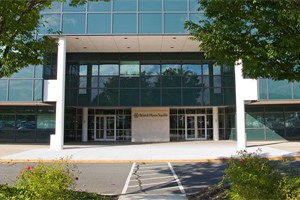 Bristol-Myers Squibb has nosed in front of Merck & Co once again in the anti-PD-1 lung cancer category after winning FDA approval of a broader label claim for Opdivo.
Bristol-Myers Squibb has nosed in front of Merck & Co once again in the anti-PD-1 lung cancer category after winning FDA approval of a broader label claim for Opdivo.
The US regulator approved Opdivo (nivolumab) to treat advanced non-small cell lung cancer (NSCLC) in patients whose disease has progressed despite earlier platinum-based chemotherapy, regardless of whether the tumour involves squamous or non-squamous cells. Previously, Opdivo was indicated for use in squamous NSCLC only.
Merck bagged approval in the US for Keytruda (pembrolizumab) in both squamous and non-squamous NSCLC earlier this month, but only in patients whose tumours test positive for PD-L1 expression using Dako’s recently-approved diagnostic.
Unsurprisingly BMS highlighted that Opdivo can be prescribed “regardless of PD-L1 expression”, and the two drugs are expected to jostle for dominance in the lung cancer market in much the same way as they have competed in melanoma.
The FDA’s head of haematology and oncology products, Richard Pazdur, noted however that “there is still a lot to learn about the PD-1/PD-L1 pathway and its effects in lung cancer, as well as other tumour types”.
“While Opdivo showed an overall survival benefit in certain non-small cell lung cancer patients, it appears that higher expression of PD-L1 in a patient’s tumour predicts those most likely to benefit.”
Given the high cost of both Opdivo and Keytruda – BMS has said its drug will cost around $12,500 per month for the average NSCLC patient – it will be interesting to see whether payers try to reserve use of the drug to patients most likely to respond.
Feasibly, they could make PD-L1 expression a condition of coverage, which would negate any label advantage for BMS, although some analysts believe the broader label will translate to a competitive advantage as PD-L1 testing could require a second biopsy and introduce additional procedure and delay into the treatment decision.
Opdivo was approved on the strength of data from the CheckMate -057 trial which compared Opdivo to docetaxel in second-line NSCLC therapy.
The median overall survival in the Opdivo group was 12.2 months, compared to 9.4 months for the chemotherapy arm. Overall response rates were 19% and 12% for the Opdivo- and docetaxel-treated groups, respectively, with effects lasting 17 months for BMS’ drug and six months for the control.




